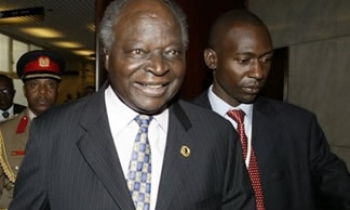Amnesty International has accused Internet giants Yahoo, Microsoft and Google of violating human rights principles by cooperating with China's efforts to censor the Web and called on them to lobby for the release of jailed dissidents. The London-based human rights group also called on the Internet companies to oppose in public Chinese government requests that violate human rights standards.

"The Internet should promote free speech, not restrict it. We have to guard against the creation of two Internets – one for expression and one for repression," said Larry Cox, executive director of Amnesty's US branch. The companies "have violated their stated corporate values and policies" in their pursuit of China's booming Internet market, Amnesty said. It appealed to them to "call for the release of cyber-dissidents."
In assisting the Chinese administration by complying with its censorship demands, these companies are seen to be facilitating or sanctioning the government's efforts to control the free flow of information. They thereby contravene established international norms and values, and compromise their own stated principles, Amnesty said in its report Undermining Freedom of Expression in China: The role of Yahoo, Microsoft and Google released Thursday.
All three companies have, in one way or another, facilitated or colluded in the practice of censorship in China. Yahoo has provided the Chinese authorities with private and confidential information about its users. This included personal data that has been used to convict at least two journalists, considered by Amnesty International to be prisoners of conscience. Microsoft has admitted to shutting down a blog on the basis of a government request. Google has launched a censored version of its international search engine in China.
All three companies, the report said, have demonstrated a disregard for their own internally driven and proclaimed policies. "They have made promises to themselves, their employees, their customers and their investors which they failed to uphold in the face of business opportunities and pressure from the Chinese government. This raises doubts about which statements made by these organisations can be trusted and which ones are public relations gestures."

Ever since the introduction of the Internet in China in 1994 and particularly since its commercialisation in 1995, the Chinese government has sought to control its content and to censor information it deemed detrimental or sensitive. With over 123 million Internet users, experts consider that China operates the most extensive, technologically sophisticated and broad-reaching system of Internet filtering in the world.
The willingness of Yahoo, Microsoft and Google to override their principles amounts to a betrayal of trust in the face of the lucrative that the Chinese market offers them, the Amnesty report said. The country's estimated 123 million Internet users represent only about 9 per cent of China's total population of 1.3 billion. With a burgeoning economy, this proportion is set to rise.
Amnesty rubbished the oft-repeated claim of these companies that they do not morally agree with the restrictions on freedom of expression in China but they are forced to co-operate with the policy based on the premise that local Chinese law demands it. "Companies are in effect operating in a zone of ambiguity where they have to make a judgment as to where the boundaries of the law lie.
"This lack of certainty has created a situation where Internet companies are under pressure to undertake 'self-censorship'. There is no definitive list of banned words or phrases. Companies, in an effort to retain their licence to operate, are required to 'feel their way' and follow the filtering habits of competitors."

Moreover, Amnesty said, Chinese censorship laws and practices contradict the foundations of the Chinese legal system – the Constitution. The Chinese Constitution, under article 35, provides for freedom of speech, of the press, of assembly, of association, of procession and of demonstration for all citizens.
The report went on to say, "These companies should also recognise that their actions are in breach of Article 19 of the Universal Declaration of Human Rights, which provides for freedom of expression for everyone, and that China is a signatory to the International Covenant on Civil and Political Rights (ICCPR), which contains more specific obligations on Freedom of Expression and Freedom of Information.
It also described the argument that the mere presence of the world's leading Internet companies in China will aid economic liberalisation which will automatically lead to political freedom, as "spurious." It said, "The reality is that the Internet has had an established presence in China for over a decade, which means that the world's major Internet companies can no longer be considered to be helping bring the Internet to China. Instead, they are attempting to gain an increasing share of a rapidly growing market in the knowledge that it will expand with or without their presence."









